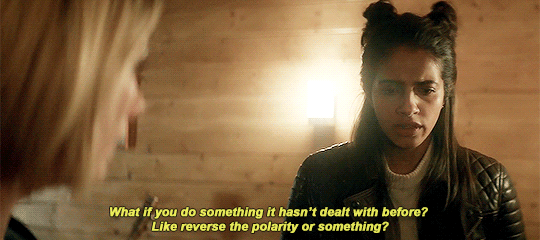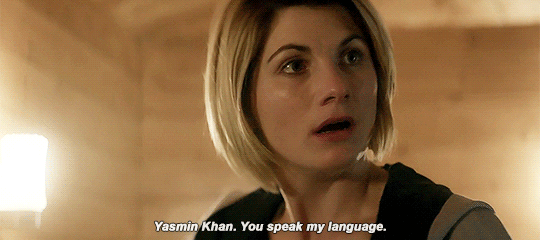Photo








Love, in all its forms, is the most powerful weapon we have. Because love is a form of hope, and, like hope, love abides … in the face of everything. You both found love with each other. You believed in it, you fought for it, and you waited for it. And now, you’re committing to it. Which makes you, right now, the two strongest people on this planet. Maybe in this universe.
4K notes
·
View notes
Photo




I know there aren’t many certainties in any of our lives, but Umbreen, Prem, what i see in you is the certainty you have in each other.
7K notes
·
View notes
Photo

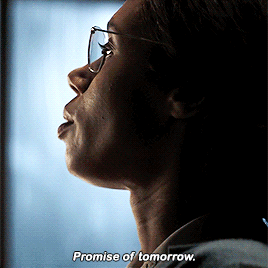
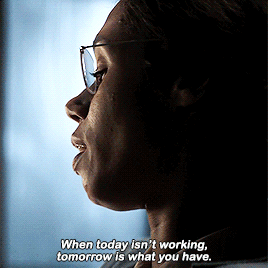
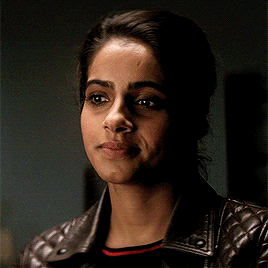
You kept going. Always. And education makes you unstoppable.
10K notes
·
View notes
Audio
This was an extraordinary hour of television. We talk about our thoughts after watching “Rosa.”
17 notes
·
View notes
Audio
ICYMI, we talked about “The Ghost Monument” on This Week in Time Travel last Sunday! Check back in tonight for our thoughts on “Rosa.”
8 notes
·
View notes
Text
Brief Hiatus
Hello everyone!
As you may recall from my earlier post, I’m heavily involved in the midterm elections right now in the United States. I had hoped to be able to continue writing reviews, but unfortunately, I haven’t been able to do that. I simply do not have the time right now to give my written reviews the time and attention they deserve.
I will still be podcasting on This Week in Time Travel, since recording my thoughts is much quicker and easier. So if you want my immediate reactions to the latest episodes, please follow me there! I also live-tweet episodes on my Twitter.
I will go back and write reviews for this entire season once the election is over. Thanks for sticking with me!
31 notes
·
View notes
Text
Whovian Feminism Reviews “The Woman Who Fell To Earth”
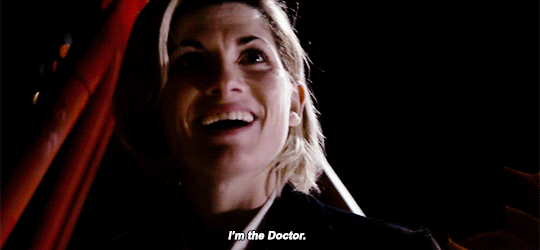
It feels like I’ve been waiting ages for this. And finally, she’s here. And she was brilliant.
Doctor Who made an exuberant return to our screens with a new showrunner, an almost entirely new creative team, and — for the first time in the show’s historic 55 year run — a woman as the new Doctor. “The Woman Who Fell to Earth” was a busy episode with an impossibly long list of introductions to make, and yet it managed to welcome the Doctor’s new “fam” in a story filled with horror, humor, and plenty of heart.
I won’t lie — I needed this episode to be good. After fighting for a woman to be the Doctor for so hard and for so long, I don’t think I could’ve handled the heartbreak if it had been subpar. It’s not really fair that TV shows and movies with women leads are held to such impossibly high standards, but that’s the unfortunate side-effect of sidelining women for so long and featuring them in the lead role so infrequently. Our hopes and expectations are so high precisely because we have such limited opportunities. Thankfully, “The Woman Who Fell to Earth” met and even outperformed our expectations. The very few trolls who are still harassing supportive fans were drowned out by the overwhelmingly positive response to Whittaker and her new friends, and the ratings went through the roof. Whittaker has utterly captured the fandom, and more importantly, she’s brought in an entirely new generation of fans.
Nevertheless, you could practically feel the tension about the Doctor being a woman running through the episode. The Doctor herself was notably unbothered by the change, simply asking “Does it suit me?” (God, yes it does). But her final monologue was squarely aimed at the audience:
Because we’re all capable of the most incredible change. We can evolve while still staying true to who we are. We can honor who we’ve been and choose who we want to be next.
This is a final Hail Mary throw to the fans who were still unconvinced. Each Doctor is new and different from the one who came before, building and changing and evolving the character over the decades. This is just another evolution — grounded in the show’s deep history but looking forward and beginning to embrace the character’s full potential. It’s a deliberate choice to embrace the future, instead of remaining stagnant and trapped in the past.
Jodie Whittaker knew the importance of the role she took on, and she performed it brilliantly. It’s always difficult to judge a new Doctor in their first episode, since they are supposed to be a bit unbalanced and chaotic post-regeneration. But even when the Doctor didn’t quite have a grip on who they are, Whittaker was a force to watch, attacking every new scene with an unquenchable energy that was utterly captivating. She captured the Doctor’s earnest, childlike joy just as easily as she assumed the Doctor’s strident anger.
It’s incredible that Whittaker didn’t extensively watch Doctor Who before assuming the role, because there’s echoes of so many previous Doctors in her own performance, from Patrick Troughton’s physical humor to David Tennant’s hectic energy. Between the out-of-commission TARDIS, the big new family, and the cobbled together bits of Earth and alien tech, I was even getting a Pertwee-ish vibe from this story. But the Thirteenth Doctor is clearly stamping out her own personality. When the Third Doctor would’ve tried to escape Earth, she lingered. Where the Tenth Doctor would have gotten carried away, she focused.
The moment I truly fell in love with her was when, frustrated by her inability to get anything done without her sonic screwdriver, she decided to go ahead and build one herself. It’s been alluded to before that the Doctor has made their own sonic, but this is the first time we’ve ever seen them do it onscreen (the last two Doctors had theirs magically supplied by the TARDIS). That sequence, set to Segun Akionla’s gorgeous score, is going to be iconic. This is a Doctor who is going to do things on her terms and build it her own damn self.
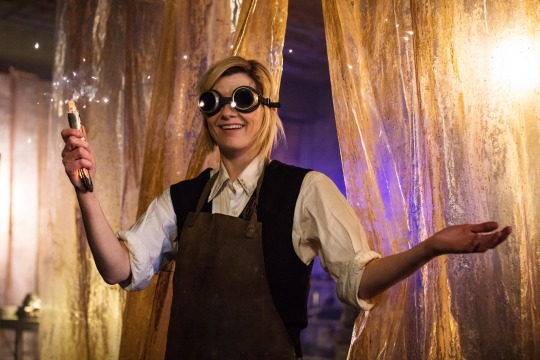
But the Doctor can’t do everything on her own, and her new friends show quite a lot of potential. Yaz was given the least attention this episode, but I have a feeling she’s going to be the one to watch. She’s driven, ambitious, and ready to run into danger — perfect companion material. But Yaz is a cop, and she’s used to being in a position of authority in dangerous situations. We’ve already seen her clash with the Thirteenth Doctor over who will be in charge, and I have a feeling that we haven’t seen the end of that conflict.
Ryan was the true heart of this story. He’s earnest and sweet, even if he has his moments of explosive frustration. He’s also curious and open to believing some of the more incredible things that the Doctor says. Together, Yaz and Ryan balance each other perfectly. Yaz pulls Ryan into trying new and dangerous things, and Ryan encourages Yaz to be more open to accepting that the world is a bit wilder than she could’ve possibly imagined.
I’m still warming up to Graham. He had a few comedic moments, and his relationship with Grace was adorable, but on his own he’s a little bit harder to handle. He was prickly with Ryan in a way that was uncomfortable to watch; I actually cringed when he suggested Ryan would blame his mistake granting access to the Stenza on his disability. He’s also more inclined to leave a dangerous situation, which doesn’t make him a natural candidate to be a companion. I'm curious if his character will grow or change at all while traveling with the Doctor.
Representation was a quiet focus of this story. In addition to the first woman Doctor, we had three POC lead characters, a diverse supporting cast, an interracial relationship, a nontraditional family unit, and a character with a disability. And none of these was a huge deal, it was simply reflective of the world in which we — and these fictional characters — inhabit.
Doctor Who has had a mixed record of handling disability, but I was pleasantly surprised by how well Ryan’s dyspraxia was handled. It wasn’t magically caused by aliens and wasn’t miraculously cured by the end of the episode. It wasn’t the key to solving the issue at hand, but it didn’t limit Ryan from being a hero either. It introduced the disability to thousands of viewers without stigma or shame, and since the episode aired the internet has been filled with thrilled responses from people with dyspraxia.
But there was one major failure in this story — Grace’s death.
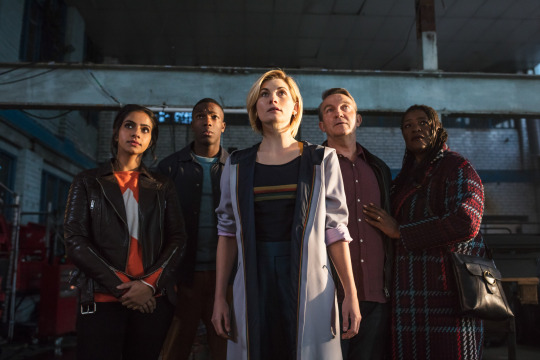
Of all the Doctor’s new friends, Grace was the most suited to being the Doctor’s companion. She wasn’t afraid to run towards danger — in fact, she loved every moment of it. She kept her eye on the bigger picture and always asked the right questions. And she kept everyone in check, including the Doctor (and that’s no small task). She would’ve loved every moment of adventure in the TARDIS. Instead, she was summarily killed off just as her adventure was getting started.
I was following the conversation on Twitter during the simulcast premiere. While everyone was sad at Grace’s untimely death, the disappointment was particularly pronounced amongst black women. I highly encourage everyone to read Tai Gooden’s review in Hypable and listen to the TARBIS (Time and Relative Blackness in Space) podcast’s response to hear directly from black women and understand why they were so hurt by Grace’s death.
In my mind, Grace’s death is absolutely an example of fridging —a death created for the sole purpose of causing Ryan and Graham grief and propelling their characters forward. Her final words were to encourage Graham not to be afraid without her. Ryan’s YouTube commentary, where he grieves over her death, anchors the beginning and end of the story. And given that Ryan and Graham never got along well on their own, Grace’s death will almost certainly be a recurring theme between them now that they’re trapped in space together. It was such an unnecessary waste of a fascinating and vibrant character. For a story that was so intensely focused on presenting an inclusive and progressive vision of Doctor Who, fridging a black woman in the very first episode was an egregious betrayal.
The one caveat here is that Grace was described in early press releases as a “returning character,” which seems to imply that she will be in future episodes. I suspect that she’ll be seen in flashbacks, or that the TARDIS team will travel back in time and see her at an earlier point in her life (or it was a deliberate misdirection and Grace won’t be seen again). But it is possible that Grace’s death will somehow be reversed. I would appreciate that. However, bringing Grace back to life won’t erase the damage that’s been done. Her death will still have been used to motivate Ryan and Graham. And it will still have been a disappointing moment in what should have been a fresh start for weary fans.
273 notes
·
View notes
Audio
I’m currently working on my full written review of “The Woman Who Fell to Earth,” but if you can’t wait, here’s what I said about the episode on this week’s very early edition of “This Week in Time Travel”!
16 notes
·
View notes
Photo


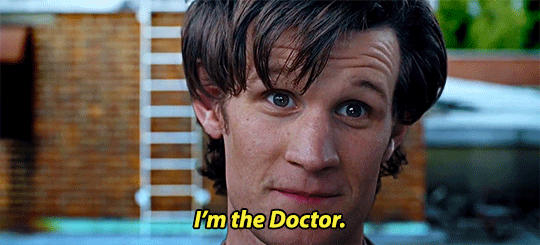
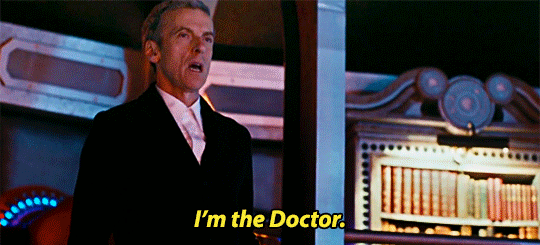
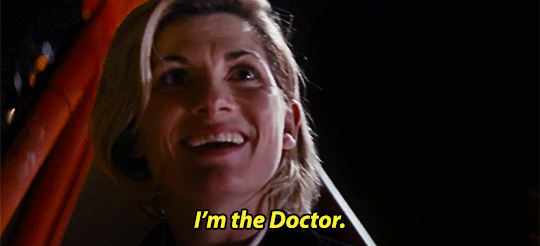
First time saying “I’m the Doctor”
44K notes
·
View notes
Photo
What a fantastic episode! I’M SO EXCITED!

“We can honor who we’ve been and choose who we want to be next.”
7K notes
·
View notes
Video
Shatter that glass ceiling, girl!
tumblr
The Doctor’s ready. Are you?
The Doctor Who Global Premiere, Sunday, October 7 on @bbcamerica.
6K notes
·
View notes
Link
One of my favorite magazines, The Sartorial Geek, has launched a Kickstarter campaign for their third issue! Even more excitingly, I’m going to have an article in this issue about the fabulous, feminist fashion choices of the Thirteenth Doctor!
The Sartorial Geek is a quarterly magazine promoting nerd culture, girl power, and general good vibes. Their first issue debuted during Women's History month and featured an interview with a Top Chef contestant, a look at an official (female-designed) Black Panther jewelry collection, and self-care tips. Their second issue came out during Pride month and took a look at love in all of its forms, from platonic relationships to sisterly love to all kinds of romance. Issue 003 will highlight women in sci-fi and STEAM, including the Doctor!
I've loved every issue @sartorialgeek has put out, and working with the team has been an absolute delight. Plus, they pay contributors for the work they produce, which is shows just how committed they are to doing things right. So let's live our values and invest in a magazine written and produced by fans and for fans, that puts so much love and respect into their work!
17 notes
·
View notes
Text
Progress and High Water Marks

The writers and directors of the next series of Doctor Who have been announced, and there’s a lot to celebrate! Two women, Sallie Aprahamian and Jennifer Perrott, will be directing, and two women, Malorie Blackman and Joy Wilkinson, will be writing!
By the raw numbers alone, this series is impressive, but not particularly groundbreaking. Series 9 also had two women writers and directors, Season 20 and Series 8 both had two women directors, and Series 10 had two women writers.
What is truly historic about Series 11 is that it will feature the very first POC writers in the show’s 55 year history: one woman (Blackman) and one man (Vinay Patel). It will also feature the third POC director in the show’s history (Mark Tonderai) according to Joy Piedmont.
While this is exceptionally good news, it’s hard not to feel frustrated by how limited these victories are. Two women writing and directing per season seems to be a high water mark that Doctor Who can’t climb over. And there has still never been a WOC director on Doctor Who.
At the same time, I’ve been struggling with how to express my frustration. I don’t want to do anything to diminish the importance and impact of the new writers and directors this season. And I don’t want to appear, for a lack of a better word, ungrateful. After all, this is still progress, right? Chris Chibnall has only just begun his tenure as showrunner, and there's still plenty of time for him to keep pushing Doctor Who towards parity.
Yet I feel like I say something similar every year — be patient, wait and see. And I’m so tired of being patient.
I’ve been thinking a lot lately about the Bechdel Test, which evaluates a piece of media by whether or not it has two women who speak to each other about something other than a man. It’s been broadly misunderstood as some sort of basic pop culture feminist test, but the truth is that the Bechdel Test is basically useless for evaluating any individual movie or TV show. Its true power is in revealing how our media is overwhelming dominated by the stories of men — particularly white men — to such a degree that the presence of two female characters who don’t speak about a man is noteworthy.
What if we turned a critical eye to the other ways we let men dominate the stories we see on screen? To date there have only been two Doctor Who stories that were both written and directed by women — “Enlightenment” (1983) and “The Mark of the Rani” (1985). And “The Mark of the Rani,” was written by a husband-and-wife writing team. A majority of Doctor Who stories were both written and directed by white men, without anyone so much as batting an eye.
That doesn’t just have terrible implications for women working in the industry. This also has implications for the type of stories and representation we see on-screen.
I remember watching “Enlightenment” for the first time and being filled with this awful dread for the Doctor’s companion, Tegan, who becomes the object of fixation for an omniscient, eternal being called Marriner. He regularly reads her thoughts, rummages through her memories without her consent, and monitors and controls her movements. At one point he tells her that he is empty without her, saying “I look into your mind and see life, energy, excitement. I want them. I want you.” Tegan asks him if he’s in love with her, and I realized then that I wasn’t really afraid of Marriner. I was afraid of that turn, where fixation would be presented as love and where his control would be seen as evidence of his caring. I’ve seen that story dozens of times before, from male writers and directors that I still admire. But instead Marriner replies, “Love? What is love? I want existence.” In the hands of Fiona Cumming and Barbara Clegg, Marriner’s actions are not romanticized or excused. They are allowed to remain deeply disturbing to Tegan, and to the audience.
We need more women writing and directing the stories we see on screen, particularly now that we finally have a woman portraying the Doctor. Maybe we should have a test like the Bechdel Test for writers and directors — let’s call it the Enlightenment Test. A TV show or movie could only pass if it is written AND directed by someone other than a white man. On an individual level, it would be practically useless. After all, if Doctor Who hired only one woman writer and director next year and put them on the same episode, that story could pass, but we’d have taken a step back for representation overall.
But maybe, if we took a broader view, we could start to question just how few women and POC writers and directors are being hired for our favorite movies and TV shows. Think about how many of your favorites would pass such a test. In 55 years, only one Doctor Who story would pass.
One day, I want it to be just as normal and unexceptional when two women or two POC write and direct an episode of Doctor Who as when two white men write and direct an episode of Doctor Who.
For now, I suppose I’d settle for one episode in Series 11.
102 notes
·
View notes
